Introduction
The concept of a smart home has evolved from a futuristic dream to an everyday reality, thanks to rapid advancements in connected technology. Today, homeowners can control lights, security cameras, locks, thermostats, speakers, and even appliances with just a voice command or a tap on their smartphone. At the forefront of this revolution are some of the most influential tech giants and innovators—Amazon, Google, Apple, Samsung, and Philips Hue—each offering unique ecosystems that cater to different lifestyles and preferences.
Amazon leads the market with its Alexa-powered Echo devices and Ring security solutions, creating one of the largest and most affordable smart home ecosystems. Google offers intelligence-driven products like Nest thermostats, Chromecast, and Google Home, seamlessly tied to its AI assistant and Android ecosystem. Apple prioritizes privacy and premium performance with its HomeKit and HomePod solutions, making it the go-to choice for Apple loyalists. Samsung SmartThings stands out for its hub-based compatibility, allowing users to connect devices across multiple brands and protocols for a unified experience. Finally, Philips Hue dominates the smart lighting industry, enabling homeowners to set the mood and ambiance with vibrant, customizable lighting that integrates across platforms.
Each of these brands has its own strengths—some focusing on security and automation, others on entertainment, lighting, or ecosystem integration. Whether you’re starting small with smart bulbs or building a fully automated home, these companies provide innovative solutions that bring convenience, comfort, and control into everyday living.
1
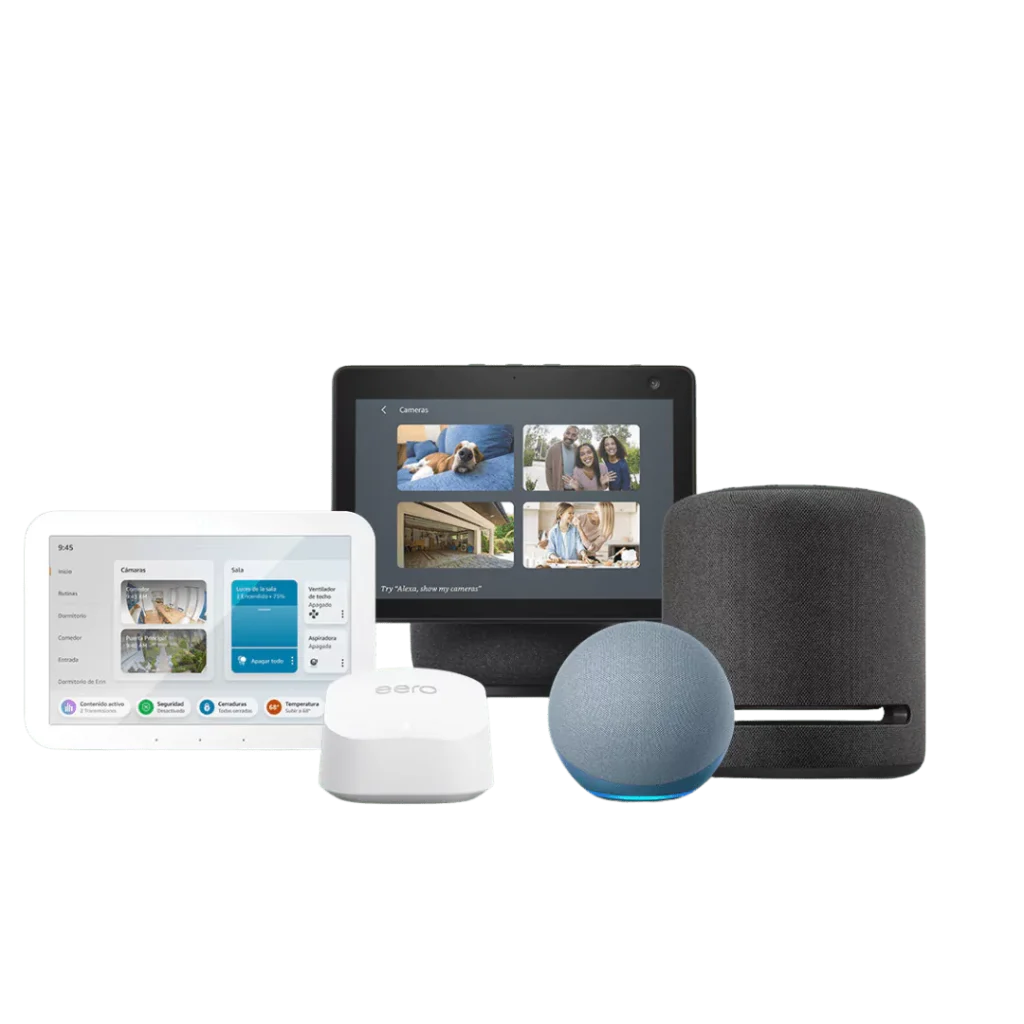
Amazon (Alexa, Echo, Ring)
Amazon has become a global leader in the smart home industry through its Alexa voice assistant, Echo smart speakers, and Ring security devices. Together, they create a seamless ecosystem that allows users to control lighting, appliances, entertainment, and security—all with simple voice commands or app integration.
A+
Overall Grade
4.9
10K+
Review
- Features
Hands-free home automation
Enhanced home security with Ring products
Easy integration with thousands of devices
Affordable entry-level options
- Benefit
Hands-free home automation
Enhanced home security with Ring products
Easy integration with thousands of devices
Affordable entry-level options
Pros :
✔Extensive ecosystem
✔Regular updates and new features
✔Strong security integration with Ring
✔Budget to premium product range
Cons :
✘Privacy concerns around Alexa voice recordings
✘Some advanced features require Amazon subscription services
2
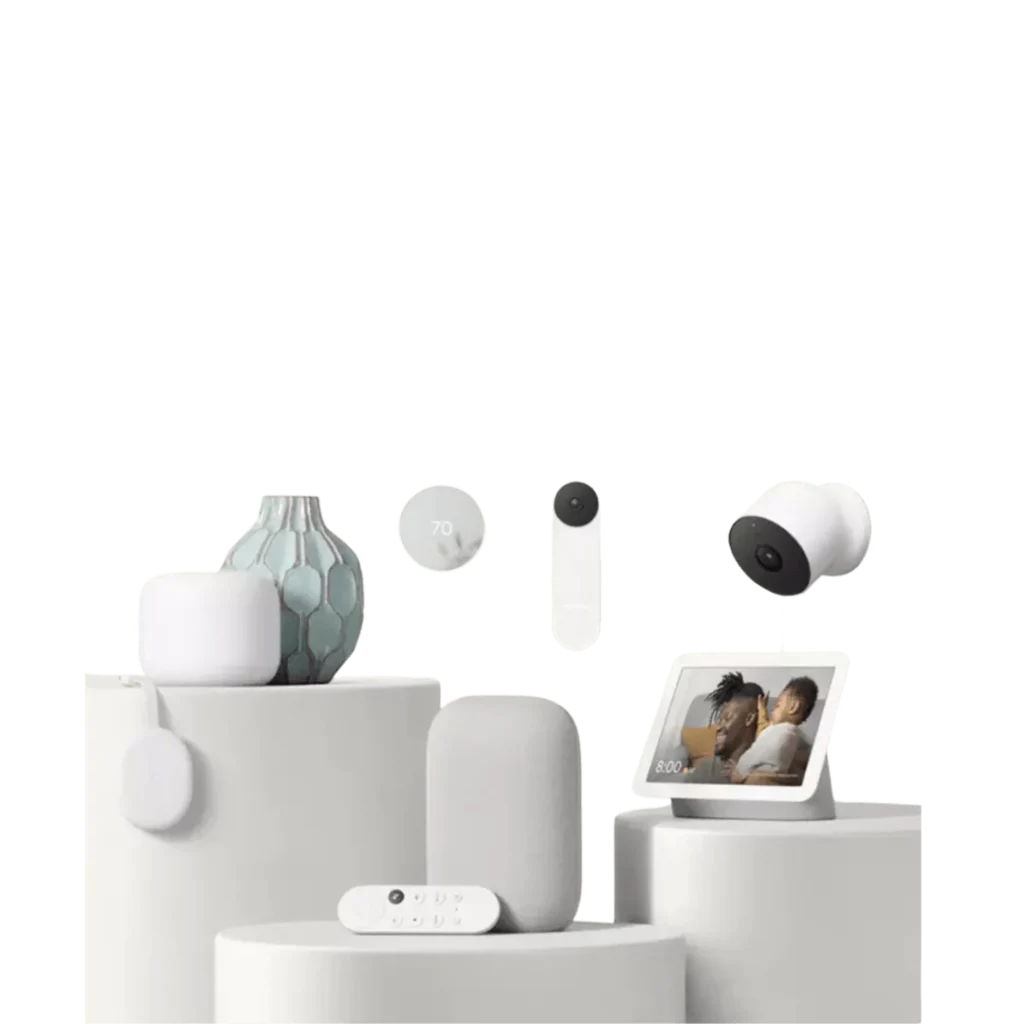
Google (Nest, Home, Chromecast)
Google’s smart home products—Nest thermostats, Nest security, Google Home speakers, and Chromecast streaming devices—are designed to create a connected ecosystem that leverages the power of Google Assistant. Their strength lies in AI-driven automation and deep integration with Android and Google services.
A-
Overall Grade
4.7
7.5K+
Review
- Features
Google Assistant voice control
Nest thermostats, cameras, and doorbells
Chromecast for smart streaming
Seamless integration with Google ecosystem (Maps, Calendar, YouTube)
Multi-room audio and entertainment control
- Benefit
Smarter automation with AI and machine learning
Strong focus on entertainment and media streaming
Energy savings with Nest thermostat
Intuitive mobile app and integration with Android devices
Pros :
✔AI-powered, highly intelligent assistant
✔User-friendly setup and control
✔Great for Android users
✔Strong entertainment ecosystem
Cons :
✘Works best within Google’s ecosystem
✘Some products are more expensive than competitors
3
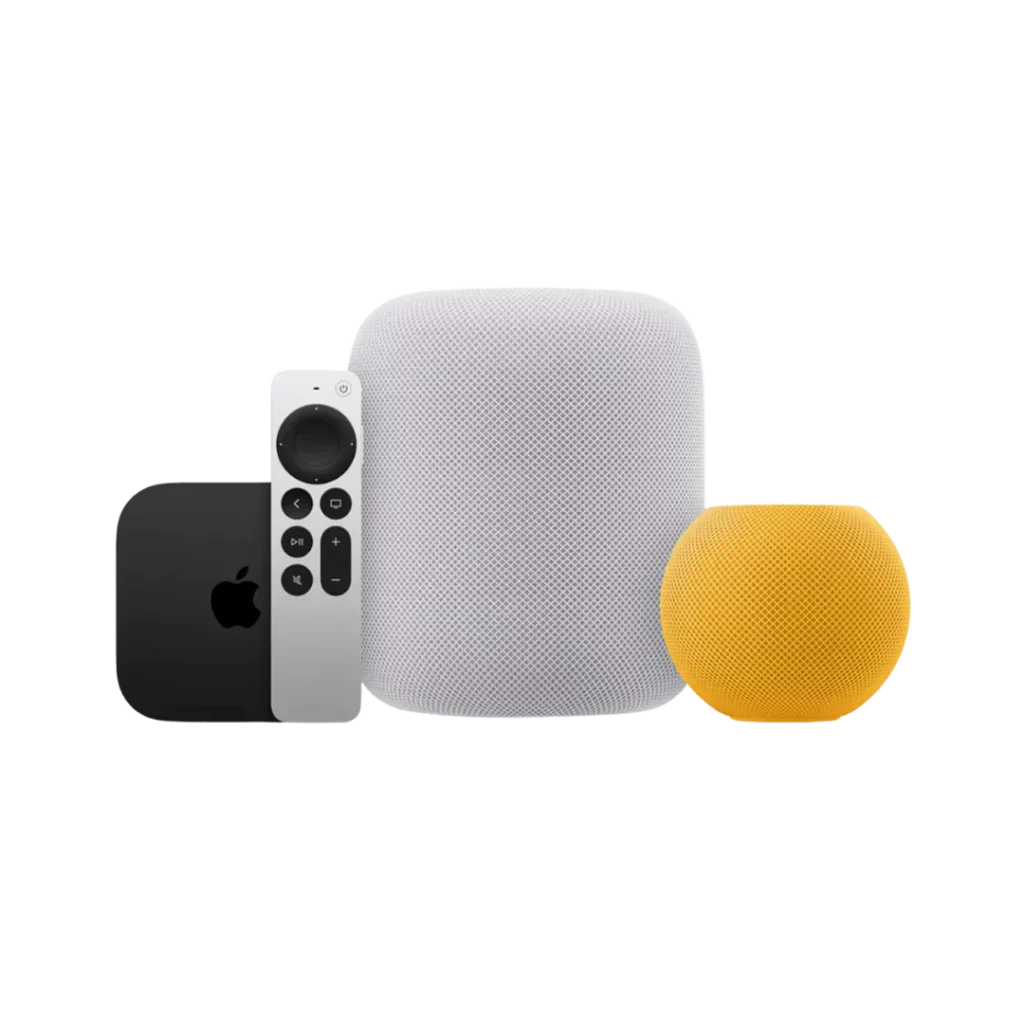
Apple (HomeKit, HomePod)
Apple’s smart home ecosystem revolves around HomeKit and HomePod smart speakers, offering a secure and seamless way to control devices via Siri. Known for its strong privacy and premium ecosystem, Apple caters to users who value security and already use iPhones, iPads, or Macs.
B+
Overall Grade
4.5
8K+
Review
- Features
Siri voice assistant for home control
HomeKit secure automation platform
HomePod mini and HomePod speakers
Advanced privacy and encryption
Works well with iOS devices and Apple Watch
- Benefit
Strongest focus on privacy and data security
Deep integration with Apple ecosystem
Reliable and premium performance
Easy-to-use Home app for central control
Pros :
✔Best option for Apple device owners
✔Secure ecosystem with encrypted data
✔Sleek design and premium build quality
✔Strong multi-room audio with HomePod
Cons :
✘Limited third-party device compatibility compared to Alexa/Google
✘Premium pricing
4
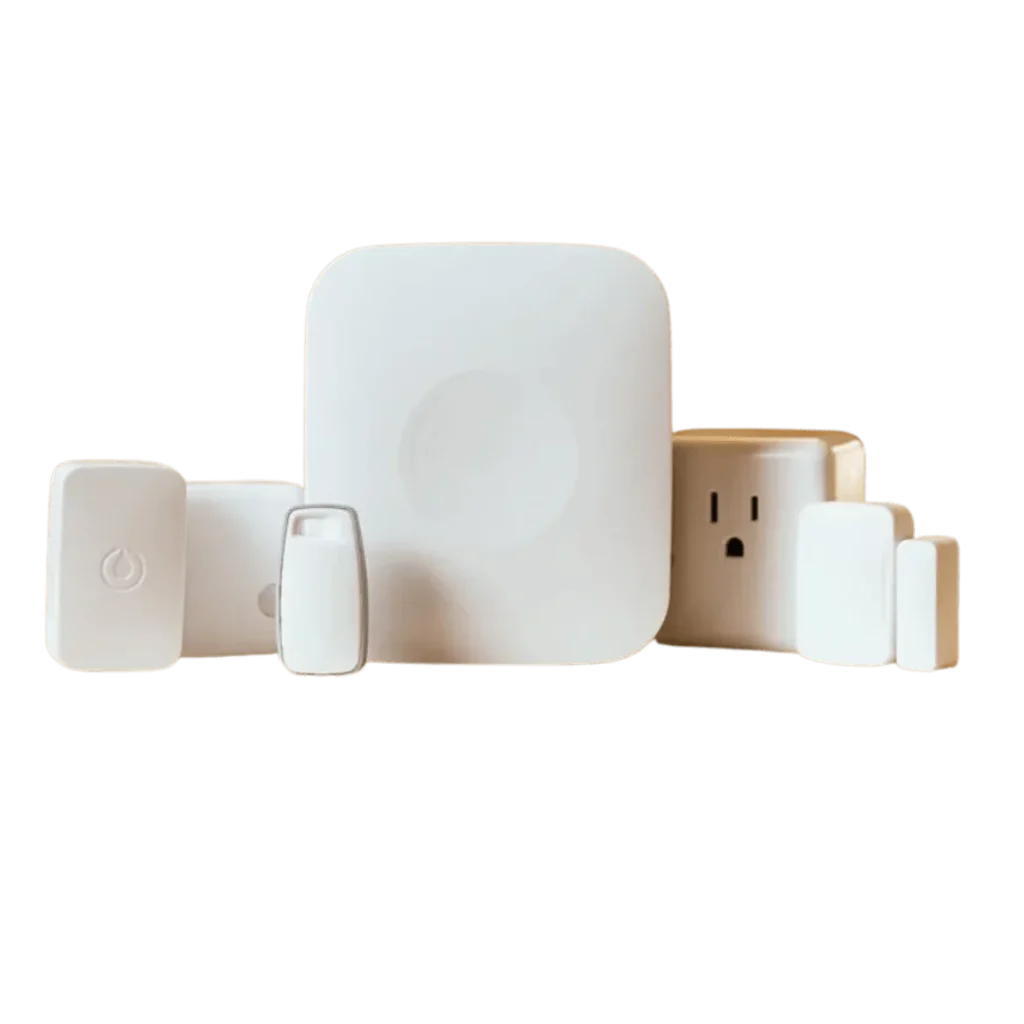
Samsung SmartThings
Samsung’s SmartThings platform acts as a universal hub, allowing users to connect and control a wide variety of smart devices from multiple brands. It supports everything from lighting and locks to appliances and security systems, making it one of the most versatile ecosystems.
B-
Overall Grade
4.3
8.5K+
Review
- Features
SmartThings app for centralized control
Compatible with Zigbee, Z-Wave, and Wi-Fi devices
Integration with Samsung appliances and TVs
Automations and routines
Works with Alexa and Google Assistant
- Benefit
Broad compatibility with third-party devices
Ideal for creating a unified smart home hub
Flexible automation rules
Strong integration with Samsung products
Pros :
✔Highly versatile and brand-agnostic
✔Works with multiple smart home protocols
✔Supports advanced automation
✔Large ecosystem of connected devices
Cons :
✘Hub required for some devices
✘Interface can be complex for beginners
5
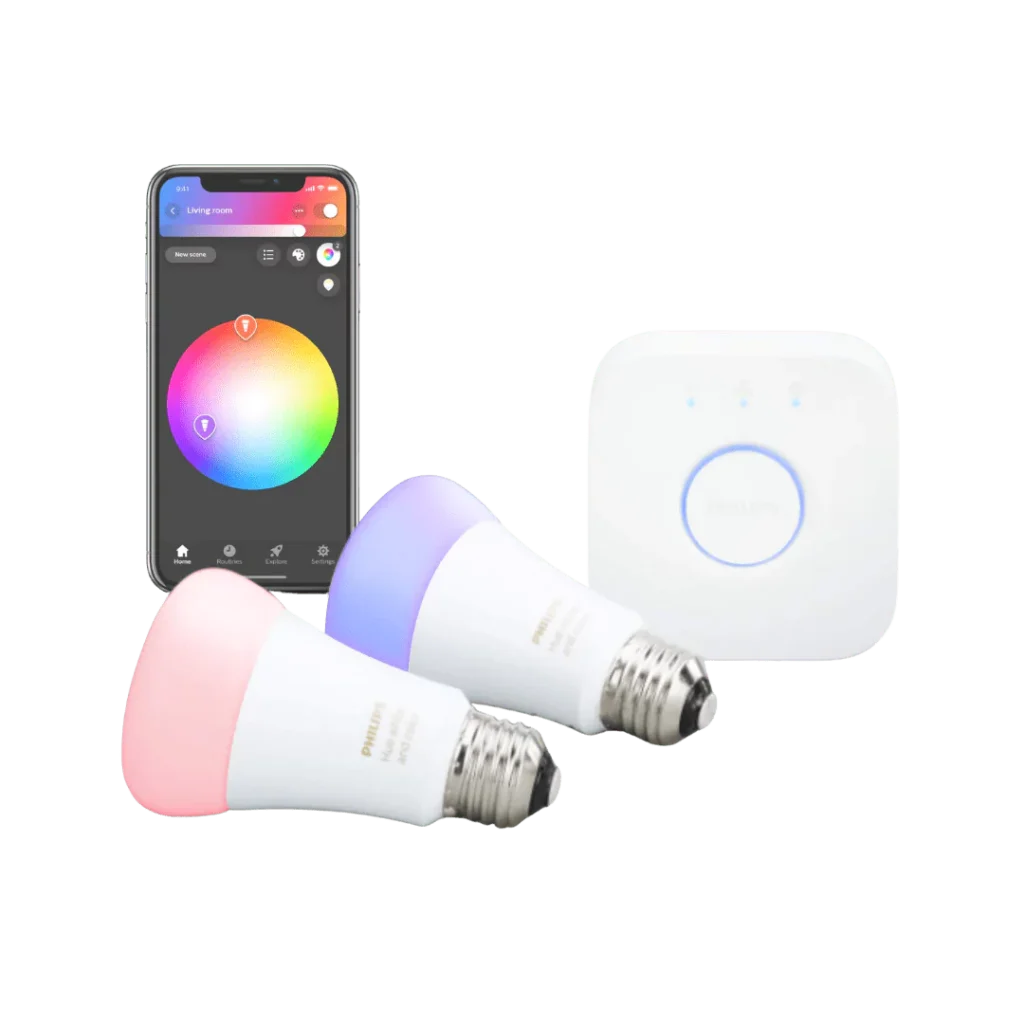
Philips Hue
Philips Hue is one of the most popular smart lighting brands, offering a wide range of bulbs, strips, lamps, and fixtures. Known for color customization, energy efficiency, and strong integration, Hue allows users to transform their home’s ambiance while syncing with music, movies, or games.
C+
Overall Grade
4.0
6.5K+
Review
- Features
Smart LED bulbs with millions of colors
Hue Bridge for advanced automation
App, voice, and remote control options
Integration with Alexa, Google Assistant, and Apple HomeKit
Sync with entertainment (TV, gaming, music)
- Benefit
Creates customized ambiance for any mood
Energy-efficient lighting solutions
Easy scalability with starter kits and add-ons
Works with major smart home platforms
Pros :
✔Best-in-class smart lighting brand
✔Excellent app and automation feature
✔Wide product variety (indoor & outdoor)
✔Long-lasting bulbs with energy savings
Cons :
✘Requires Hue Bridge for full features
✘Premium pricing compared to other lighting brands
Summary Conclusion
Smart home technology is no longer a luxury—it has become an integral part of modern living, offering convenience, security, efficiency, and personalization. Each of the five leading brands—Amazon, Google, Apple, Samsung SmartThings, and Philips Hue—brings its own strengths to the table, ensuring there’s a solution for every type of homeowner.
Amazon (Alexa, Echo, Ring) is best for those who want an affordable, versatile, and voice-first smart home ecosystem with strong security integration. It’s ideal for beginners and users who want wide device compatibility at reasonable prices.
Google (Nest, Home, Chromecast) excels at AI-driven automation and entertainment, making it a great fit for Android users, media lovers, and those who prefer smart devices that learn from their habits.
Apple (HomeKit, HomePod) stands out for its privacy, security, and premium experience, making it the top choice for households already invested in the Apple ecosystem.
Samsung SmartThings is the most versatile and brand-agnostic platform, perfect for users who want to integrate multiple brands and protocols into one hub for maximum flexibility.
Philips Hue leads in smart lighting innovation, offering endless customization for ambiance, entertainment, and energy efficiency—making it the go-to choice for those who want their lighting to be the centerpiece of their smart home.
In conclusion, the best smart home brand depends on what you value most:
Affordability and wide compatibility → Amazon
Smarter AI and entertainment integration → Google
Privacy and premium design → Apple
Versatility and universal control → Samsung SmartThings
Ambiance and lighting control → Philips Hue
No matter which path you choose, each of these brands offers a gateway into a more connected, comfortable, and intelligent home, bringing the future of living right into your everyday spaces.

